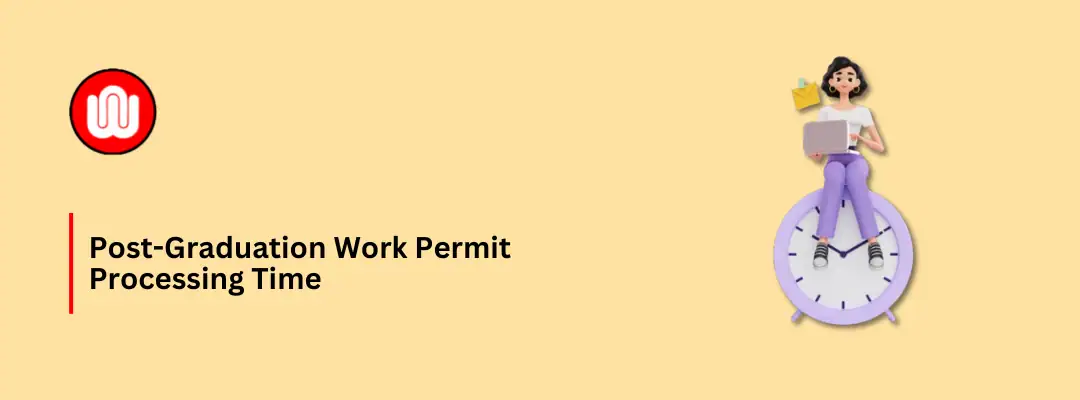Post-graduation work Permits (PGWPs) are open work permits that are extended to international students on a Canada Study Visa - upon successful completion of their Canadian educational program. With PGWPs, holders can work for any employer, without restrictions on hours, and anywhere in Canada.
These permits have a validity period spanning from 8 months to 3 years, offering a valuable opportunity for international students to gain hands-on Canadian work experience. This experience, in turn, serves as a gateway to various possibilities - including a direct pathway to apply for Canada PR visa.
Unlike most Canadian work permits, a PGWP doesn't need a Labour Market Impact Assessment (LMIA). It allows eligible graduates to get valuable work experience in Canada. With enough work experience, many international students can qualify for permanent residency programs through various pathways including:
Check Your Eligibility for Canada PR
To be eligible for a Post-Graduation Work Permit (PGWP), the international student must be at least 18 years old and have studied full-time in Canada in a program of at least 8 months. The study program must have been completed at a Designated Learning Institution (DLI) in one of the following types of programs listed below. Also, to apply for a PGWP, international students must apply within 180 days of the completion of their study program.
If an applicant is applying from within Canada, they must have a valid Canada Study Visa at the time of application. If their study permit has expired or will expire they may apply for status as a visitor before applying for the PGWP. However, applicants who apply for a PGWP before the expiration of their study permit are eligible to begin working full-time immediately, while their application is processing. Overseas applicants are also eligible to apply for a PGWP.
Eligible levels of study
The following levels of study and programs are eligible for PGWPs:
The processing time for a Post-Graduation Work Permit (PGWP) can range from 80 to 180 days. During this waiting period, applicants who submitted their PGWP application before their student permit expired are allowed to work in Canada.

Applicants have a window of 180 days from completing all program requirements to apply for their PGWP. If you leave Canada after finishing your studies, you can still apply for a PGWP from overseas. This is a change from the previous requirement of submitting PGWP applications exclusively from within Canada. In cases where the PGWP application is submitted from outside of Canada, additional documentation might be requested, depending on the processing visa office.
Having a Post-Graduation Work Permit (PGWP) doesn't restrict you from applying for another work permit later. You are free to apply for either a Labour Market Impact Assessment (LMIA) or an LMIA-exempt permit if you meet the eligibility criteria. However, it could be beneficial to explore the option of applying for Canadian permanent residence, especially considering the advantage of having gained Canadian work experience.
The following immigration programs have options for candidates with Canadian work experience:
You're allowed to apply for a Post-Graduation Work Permit (PGWP) only once. If you're thinking about pursuing another program that's an extension of your initial one or planning a more extended degree program in Canada, it's strategic to time your PGWP application. Applying after completing the longest duration of study will result in a PGWP with longer validity, up to a maximum of three years.
Canada's Post-Graduation Work Permit (PGWP) program is strategically designed to offer international students in Canada a streamlined pathway to obtain permanent residence status. By seamlessly connecting Canadian education with substantial full-time work experience in the country, candidates position themselves favorably for application under the Canadian Express Entry immigration system.
Acquiring both a Canadian educational credential and work experience becomes a significant advantage, as it adds valuable points to the candidate's Comprehensive Ranking System (CRS) score. This, in turn, enhances their competitiveness among other applicants in the quest for permanent resident status in Canada.
Provincial Nominee Programs (PNPs) and, for those who studied in Quebec, the Quebec Experience Class program, are additional immigration pathways that particularly benefit candidates holding a Canadian educational credential along with work experience. These programs offer opportunities for individuals to leverage their academic and professional background in Canada when seeking immigration to specific provinces or territories.
Read More: Can international students get Citizenship in Canada?
Related Posts
Enquire Now
How to Bring your Parents to Canada?
02 Feb, 2023 | 04:57 PM 3238171
Is Canada a Better Place to Live than the UK?
08 Sep, 2022 | 03:50 PM 186127
What's the next step after biometrics for Canada Study Visa?
16 Jun, 2022 | 05:44 PM 160330
How much funds are required for a Study Visa in Canada?
11 May, 2022 | 11:43 AM 151380
How to get a job in UK from India?
03 Jun, 2022 | 12:31 PM 145327
Is it worth immigrating to Canada from Dubai?
22 Apr, 2025 | 04:15 PM 1177
How to move to Canada with family from Dubai, UAE?
19 Apr, 2025 | 06:47 AM 5062
Top 5 ways to move to Canada from Dubai, UAE
16 Apr, 2025 | 06:05 PM 9528
How much does it cost to immigrate to Canada from the UAE?
14 Apr, 2025 | 04:52 AM 13427
Top 7 Provinces in Canada for UAE Expats
12 Apr, 2025 | 06:19 PM 14698
Stay up to date with latest news
Comments
We welcome your feedback
Your email address will not be published. Required fields are marked *